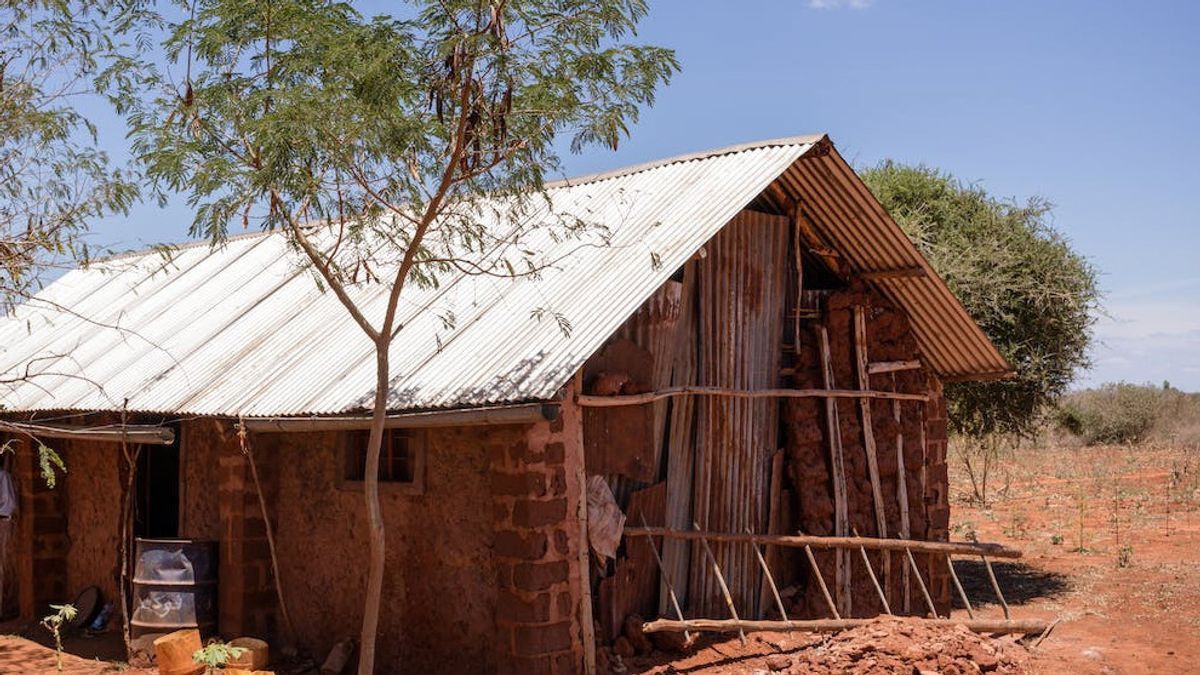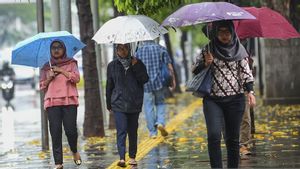JAKARTA - The government is encouraged to continue to pursue the target of reducing poverty in all provinces. The government needs to evaluate programs that support these targets.
"When the poverty rate is successfully reduced, this will increase the dignity of the Indonesian nation as a whole. The more people are free from poverty, the stronger and more advanced the Indonesian economy," said Chairman of the Indonesian House of Representatives, Puan Maharani, Wednesday, June 13.
Referring to the 2020-2024 Medium Term Development Plan (RPJMN), the Government has set a poverty reduction target between 7% to 6.5%, or 18.34 million to 19.75 million people by the end of 2024.
However, as of September 2022, the Central Statistics Agency (BPS) recorded that the number of poor people reached 26.36 million or 9.57%, which means that it is still far from the 7% target. Even the poverty rate in 14 provinces is still above the national average.
"The reduction in poverty has an important meaning in efforts to achieve inclusive and sustainable development," said Puan
"Poverty creates social, economic and opportunity inequalities, so reducing poverty is a key step to improve people's welfare as a whole," added the former Coordinating Minister for Human Development and Culture.
Puan encourages continuous and sustainable cooperation between every government agency. This collaboration is considered to have to cover several programs made to pursue the target of reducing poverty.
"Every government agency must have a target and accelerate to make various improvements to regional infrastructure to support community mobility and activities, assistance to farmers and fishermen in business practices, as well as other programs," explained Puan.
Furthermore, the Government is asked to start accelerating the reduction in poverty in the province which is the largest contributor to this number.
According to BPS records, Papua Province is ranked first as the poorest province in Indonesia. It was recorded that the poverty rate in Papua reached 26.80%.
Then, in second place is West Papua Province with a total poverty reaching 21.43%. Then in third place there is East Nusa Tenggara (NTT) with a poverty rate of 20.23%.
The fourth position is inhabited by Maluku Province, where the poverty rate reaches 16.23%. Then in fifth position there is Gorontalo Province, which is also listed as the poorest province on the island of Sulawesi, with a poverty rate of 15.51%.
In the sixth and seventh positions are occupied by Aceh Province and Bengkulu Province. The two provinces on the island of Sumatra have a fairly high poverty rate, of which Aceh is 14.75% and in Bengkulu it reaches 14.34%.
"Focus on poverty alleviation programs in areas with high poverty rates with combinations of social assistance, social security, financial inclusion, and strong infrastructure investment can help households get out of poverty," said Puan.
The former Coordinating Minister for Human Development and Culture also emphasized that the Government should improve poverty data before making policies again. This, said Puan, is to reduce the extreme poverty rate in Indonesia to zero percent.
"To achieve the zero percent target of poverty in the country, the government must first have data so that the implementation of new policies will be easily absorbed by the community," said Bung Karno's grandson.
On the other hand, Puan also encourages the Government to reduce inflation. This is because the inflation rate will affect the calculation of the poverty line and the estuary will affect the calculation of the number of poor people.
Puan assessed that the poverty rate will also be influenced by the Government's ability to absorb or provide jobs for the workforce which is expected to increase.
In addition, the projected economic growth which is expected to remain at a growth level of 5% in 2023 has the potential to reduce the rate of poverty.
"This is a problem between adjusting programs to target needs in the community. If the government can provide programs that can be absorbed by the people in improving their economy, this will reduce the number of poor people in Indonesia," concluded Puan.
The English, Chinese, Japanese, Arabic, and French versions are automatically generated by the AI. So there may still be inaccuracies in translating, please always see Indonesian as our main language. (system supported by DigitalSiber.id)













